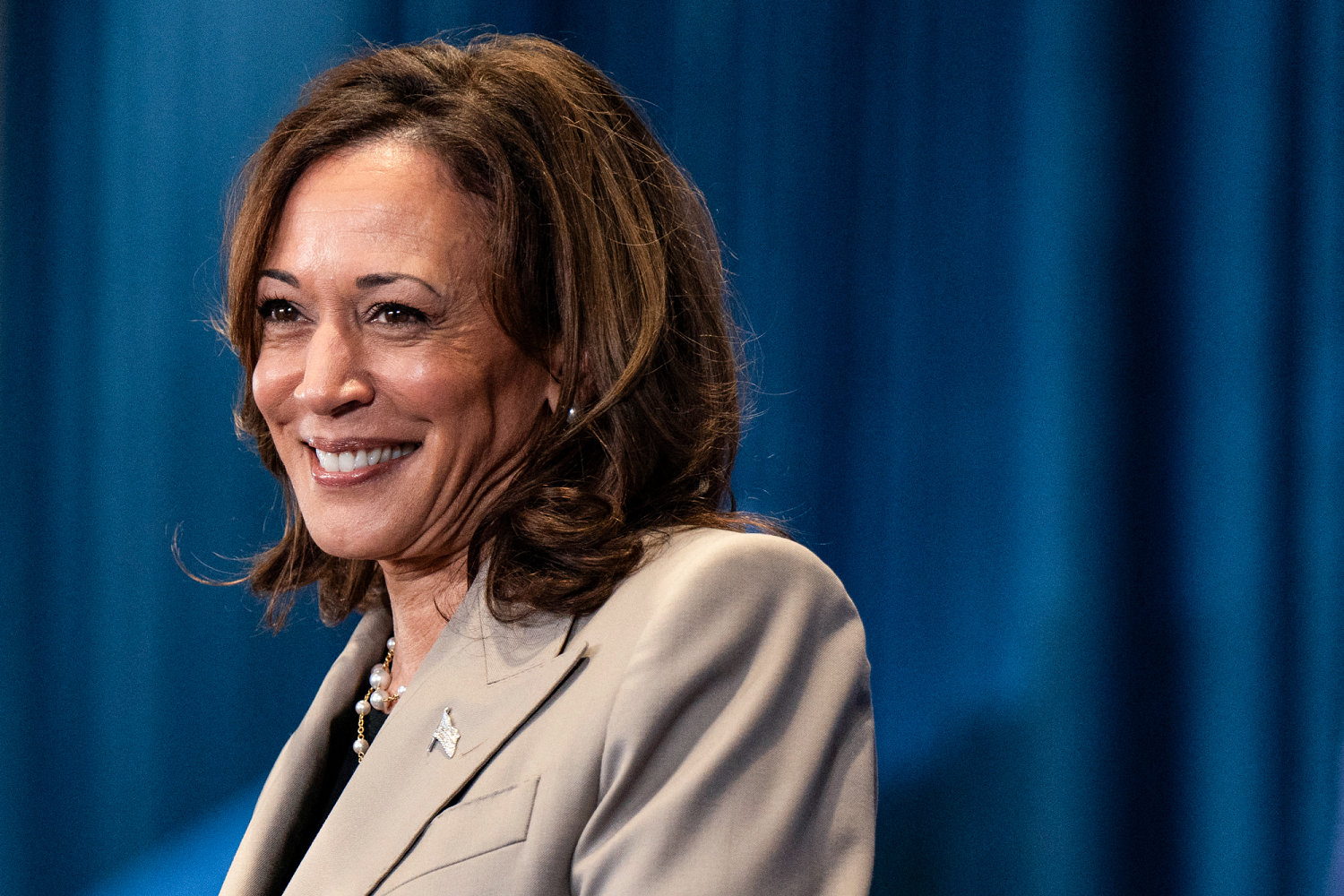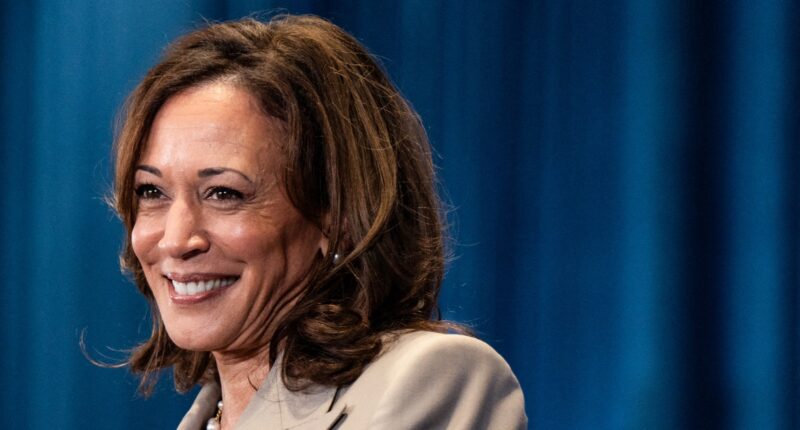
The economy has long ranked at the top of voters’ priorities in the election. With Vice President Kamala Harris rapidly consolidating support to lead the Democratic ticket, Americans will soon begin to size up how a potential Harris administration might tackle business and the economy.
Of course, Harris has already had a leading role in steering the Biden administration as vice president, but her domestic portfolio has dealt more heavily with other issues, like immigration, than with the economic ones. Here’s what her record as a senator and as California’s attorney general reveal about her approach prior to serving as vice president.
Consumer banking
Harris was the attorney general of California from 2011 to 2017. Early on in her tenure, she was engaged in talks on behalf of the state with some of the country’s largest banks and mortgage servicers over “robo-signing” and allegations of “foreclosure misconduct,” in which banks were accused of having employees sign dozens or sometimes thousands of foreclosure proceeding documents without verifying the information they included.
JPMorgan Chase, Bank of America, Wells Fargo, Citigroup, Ally Financial and other firms were nearing a deal to provide California about $4 billion of consumer relief. But Harris walked away from the talks in September 2011, believing the amount was too low. Five months later, the firms promised California up to $18 billion for mortgage customers as part of a multistate settlement.
Writing in her book “The Truths We Hold” in 2019, Harris said, “If we agree that homeowners deserve to be treated with dignity and respect, not as lines on a balance sheet to be packaged and sold, then there’s only one way to achieve the change we seek: with our voices and our votes.”
Higher education costs
In 2013, Harris led multiple states in suing Corinthian Colleges, a for-profit higher education company, over allegations of “abusive practices that left tens of thousands of students under a mountain of debt and useless degrees.” The company collapsed in 2015, following Harris’ case.
Near the end of her 2020 presidential bid, Harris ran an ad featuring Donald Trump and his shuttered Trump University. “She shut down for-profit colleges that swindled Americans. He was a for-profit college — literally,” a voiceover in the ad said.
During that campaign, Harris also unveiled a federal student debt relief plan offering to forgive up to $20,000 per eligible borrower, but some observers criticized the proposal as too narrow for many to qualify. Since then, she has fronted more far-reaching college debt forgiveness efforts as vice president. In 2022, President Joe Biden had Harris announce the rollout of nearly $6 billion in loan forgiveness linked to the Corinthian case, which then was the largest single discharge of federal loan debt.
Big tech
Harris’ approach to large technology companies was sometimes less strict than to other industries. She didn’t use the office of attorney general to stop Facebook’s controversial takeover of Instagram in 2012. And in 2017 activists voiced disappointment when Harris, then a U.S. senator, declined to support a bill that would have regulated autonomous vehicles. The measure ended up failing.
Still, Harris raised the heat on Uber in 2016, her last full year as attorney general, over its self-driving car program in San Francisco, which the company scrapped soon afterward under regulatory pressure.
She has also raised scrutiny of some of the country’s biggest tech firms’ privacy rules and handling of consumer data. In 2012, California joined 35 other states and territories in questioning Google over a major privacy change, and she sued Delta Air Lines that year over privacy concerns involving its app. The Delta case was later dismissed because of a federal law limiting states’ abilities to regulate airlines.
Organized labor
Throughout her years in public office, Harris has built up her profile as an ally of organized labor — a constituency the GOP ticket is pursuing aggressively. During the height of the 2023 Hollywood writers strike, she was set to attend an MTV event about mental health but postponed it, saying, “That would have been seen as crossing the picket line.”
In 2022, during the Culinary Union strike in Las Vegas, Harris visited workers and told them pay rises were “long overdue.” In 2020, the Communications Workers of America’s president said Harris’ joining Biden’s presidential bid made “a strong, pro-worker ticket even stronger.” And in 2019, she joined with Rep. Pramila Jayapal, D-Wash., who heads the Congressional Progressive Caucus, to co-sponsor a “Domestic Workers Bill of Rights.”
So it’s not surprising that Harris secured endorsements and words of support from major unions starting hours after Biden announced he was dropping his re-election bid.
The United Auto Workers, which has more than 400,000 active members, said on social media that “Kamala Harris walked the picket line with us in 2019, and along with President Biden has brought work and jobs back to communities” in multiple states. The International Union of Painters and Allied Trades, representing more than 140,000 workers, also swiftly got behind Harris, and the Service Employees International Union said Sunday it was “ALL IN” for her campaign.
Tariffs, trade and climate
While Harris has criticized protectionist trade policies in general, the Biden-Harris administration has preserved and even expanded many of its predecessor’s tariffs. It isn’t clear what path she might take as president when it comes to those duties.
On trading with the world’s second-largest economy, China, Harris said last year that “it’s not about pulling out, but it is about ensuring that we are protecting American interests.” Last week, speaking at a political event, she said the tariffs Trump is proposing for a second term — including 10% on all imports and up to 60% on many Chinese goods — “would increase the cost of everyday expenses for families.”
When Trump, as president, hammered out a trade deal with Canada and Mexico to replace the North American Free Trade Agreement, Harris voted against it as a senator, saying, “Trade policies should lift up workers and grow the economy but must also protect our environment.”
As California’s attorney general, Harris sued and investigated multiple energy companies over pollution and climate change. Her office brought criminal indictments against Plains All-American Pipeline after a 2015 oil spill in Santa Barbara County. Harris also reached million-dollar settlements with subsidiaries of BP, Chevron, Phillips 66 and ConocoPhillips after having found that the companies violated state pollution laws.









